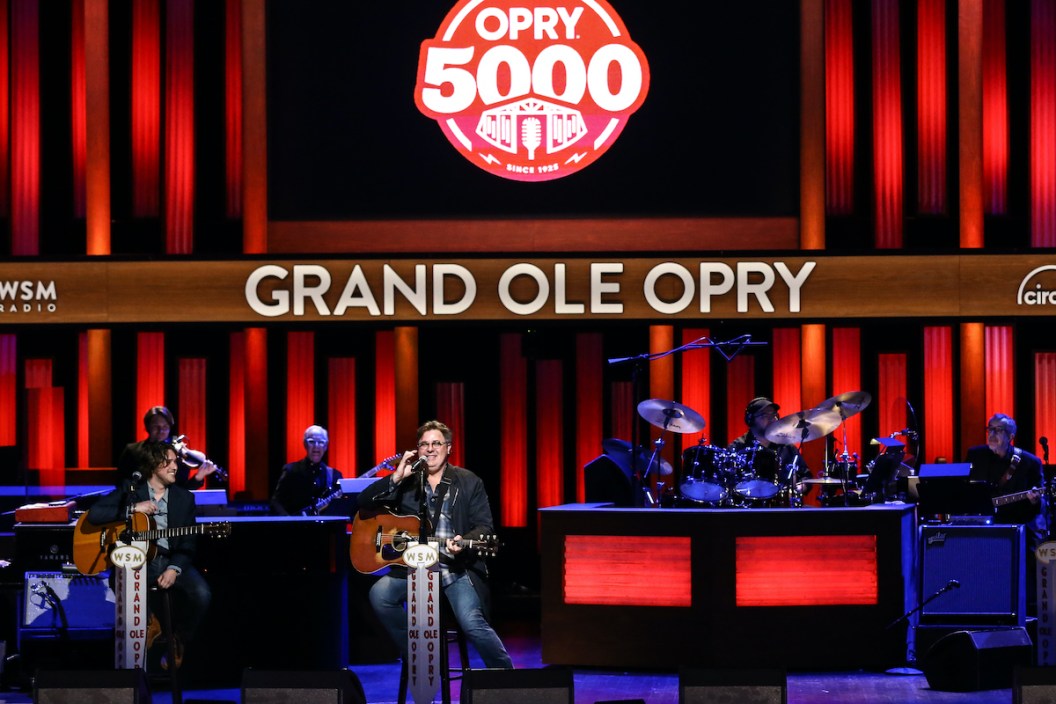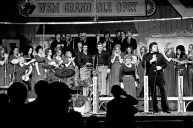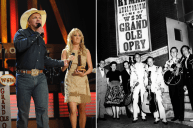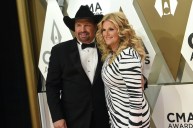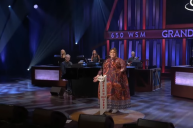On Oct. 30, the Grand Ole Opry celebrated an unmatched milestone in entertainment: its 5,000th straight Saturday night broadcast. In the 21st century alone, the weekly streak of saluting country music's live radio roots while offering current and future stars an invaluable platform has survived 9/11, a 2010 flood that damaged the Grand Ole Opry House in Nashville and, on the home stretch to 5,000, the COVID-19 pandemic.
Videos by Wide Open Country
When the music industry effectively shut down in March 2020, officials kept the show going by hosting Saturday night broadcasts at the Opry House without a live audience.
"This truly is the show that keeps going, no matter what," Dan Rogers, vice president and executive producer of the Grand Ole Opry, told Wide Open Country. "There was never a question even in the very early days of the pandemic that we would stage a Saturday night Opry performance. The question was how it would be staged. Messages from fans around the world saying things like 'the music we're hearing on Saturday nights from the Opry stage gives us hope' and 'your show is the highlight of our week during lockdown' affirmed for us that what we were doing was important. Not just to keep a Saturday night tradition alive, but to make a positive difference."
Multiple Opry members echoed Rogers' report of positive fan feedback from a time when broadcasts on the Circle Network, online and on the show's historic home, WSM Radio, offered listeners respite from troubling headlines and uncertain tomorrows.
"I have so much respect for what they did because they were kind of the one constant in a crazy world that didn't have many constants for a long time," 60-year Opry member Bill Anderson said. "I cannot tell you how many people that I heard from during last year that said, 'The only bright spot in my life is knowing that the Opry is still going to be on on Saturday night.' That was a very special thing to do. I know it was a tough decision for them, and they handled it very responsibly and very, very well. They really did a good job."
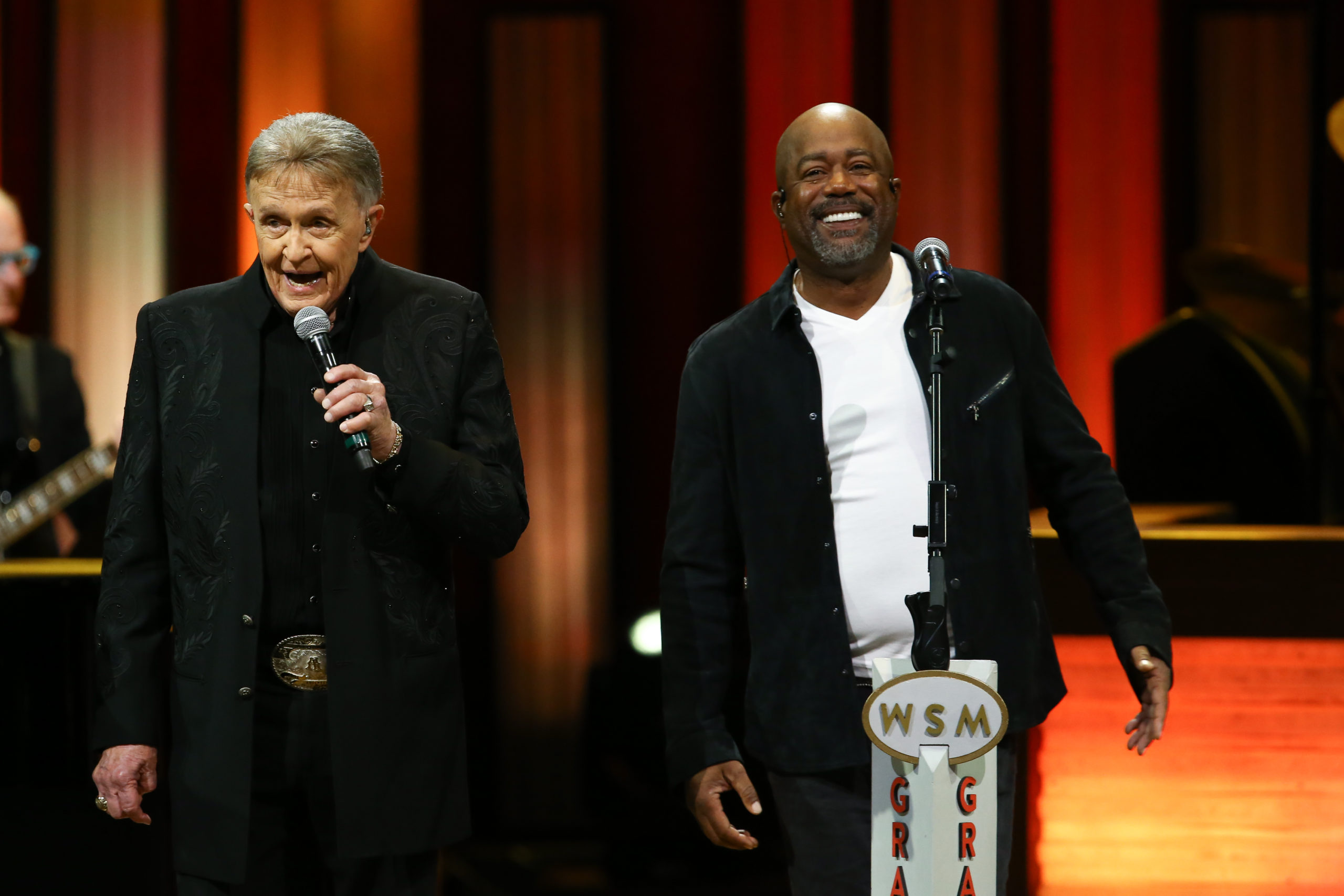
Terry Wyatt/Getty Images
Connie Smith, a member since 1965, played both the first Opry show without an audience and its 5,000th straight Saturday night broadcast.
"It was kind of a jolt at first because you were supposed to be performing and there was nobody to perform to," Smith said of adjusting to an empty Opry House. "Sometimes I think the audience doesn't realize how important they are and their response is. If an audience just sits there and listens, even if they really listen, if they don't respond, then we don't know if we're doing right or If we're pleasing them or not. And when they react or respond well, it makes us do better. So it was kind of hard to do it without an audience, but you just had to remember that it's radio and think like that."
Keeping the Opry open created opportunities for acts of varying ages and in different stages of their careers to contribute to one of country music and commercial radio's proudest traditions.
"I don't know that you talk to any artist that steps on that circle that doesn't get emotional about it," said Mary Travis, wife of 35-year member Randy Travis. "Maybe they do it enough times that they don't get as emotional. Still, I think every time they step into that circle, it reminds them of how fortunate they are to be a part of the Grand Ole Opry, in whatever capacity it is."
The Opry streak kept the porch light on, metaphorically speaking, at one of the coziest venues for members and musical guests.
"It always feels like we're going home when we go there," Mary Travis added. "We slip in the back door, just like home. We see the same familiar faces, just like home. It's a sweet place."
Like most things in society, the Opry returned to some sense of normalcy as 2020 progressed. During a 75th birthday celebration for bluegrass held on Dec. 5, a limited-capacity crowd watched Darin & Brooke Aldridge make one of their 30-plus appearances since the married duo's 2017 Opry debut. Even with butts on pews, it wasn't a typical homecoming.
"It was a little strange backstage because usually you can mix and mingle with everybody that's there, and we had to stay in our dressing rooms," Brooke Aldridge said. "We couldn't go out and talk to other artists in their dressing rooms, and we had to wear our masks the whole time until we got out on stage. That was really different."
"What makes the Opry special is the feeling of family that you have backstage," Darin Aldridge added. "The first time me and Brooke were ever back there, we weren't performing. We were just guests that night, getting to hang out. So many people were good to us, such as the Whites and of course Eddie Stubbs and Ricky [Skaggs] and so many other ones that we looked up to. Riders in the Sky was there. Getting to be friendly with them and getting to pick some in the dressing rooms and just having that kind of family vibe backstage... During the pandemic, it was just come in, play your set and then leave just to keep separation."
Socially distanced audiences witnessed such special moments in early 2021 as the March debut of "Dear Miss Loretta," a song Carly Pearce wrote about about one Opry mainstay (Loretta Lynn) and later recorded with another (Patty Loveless). Pearce joined the family circle in August, shortly after a surprise invite from Dolly Parton and within three months of the May return of capacity Opry House crowds.
"You can have hit records, you can sell out shows, you can be on award shows," Pearce said during her induction. "But all of that can fade, and this is something that I will have forever -- and a place that I can come to, and a stage that I can sing on, and a circle that I can stand in, and a family that I can be a part of, and that can never be taken away from me."
As for why the streak began a little over 5,000 weeks ago, the Tennessean reported in August that the Opry has missed two Saturday nights since its 1925 launch: In 1945, following the Thurs., April 12 death of former U.S. President Franklin D. Roosevelt, and in 1968, after the Thurs., April 4 murder of Martin Luther King, Jr.
"I just remember what I have heard and read about it," Anderson said of the silent Saturday night in '68. "I was out of town. I remember exactly where I was. I was playing a show in south Alabama, and some of the security people from the show came up to my bus before I went inside and told me what had happened in Memphis. I didn't know what the Opry was going to do and wasn't able to tune in and listen at the moment. When I got back in town, I realized what had happened. I think it was probably the wise thing to do."
Per the Opry's website, a 7 p.m. curfew in Nashville following the King assassination forced WSM to broadcast past performances. To serve fans who'd traveled from out of town to catch a live Opry show, Roy Acuff hosted a 2 p.m. concert at his downtown museum.
Broadcasts before and during the streak captured the imagination of future stars, from avid listener and future Country Music Hall of Fame member Ray Charles to Eddie Montgomery, who associates the Opry with a childhood spent in Kentucky.
"I remember sitting in the car late at night with my dad and listening to the Grand Ole Opry on the radio," said Montgomery, a 2009 inductee alongside his late Montgomery Gentry bandmate Troy Gentry. "I'll never forget, my old man always said, 'It don't matter how many awards you can win or whatever. You still ain't made it until you're a member of the Opry.' When Charlie Daniels asked us to be member of the Opry, well, there's just one way to say this. It was badass. It was awesome. To be a member of the Opry, when you get that, you can say, 'Well hell, man. We might've done something.'"
Read More: Dolly Parton Breaks Three Guinness World Records
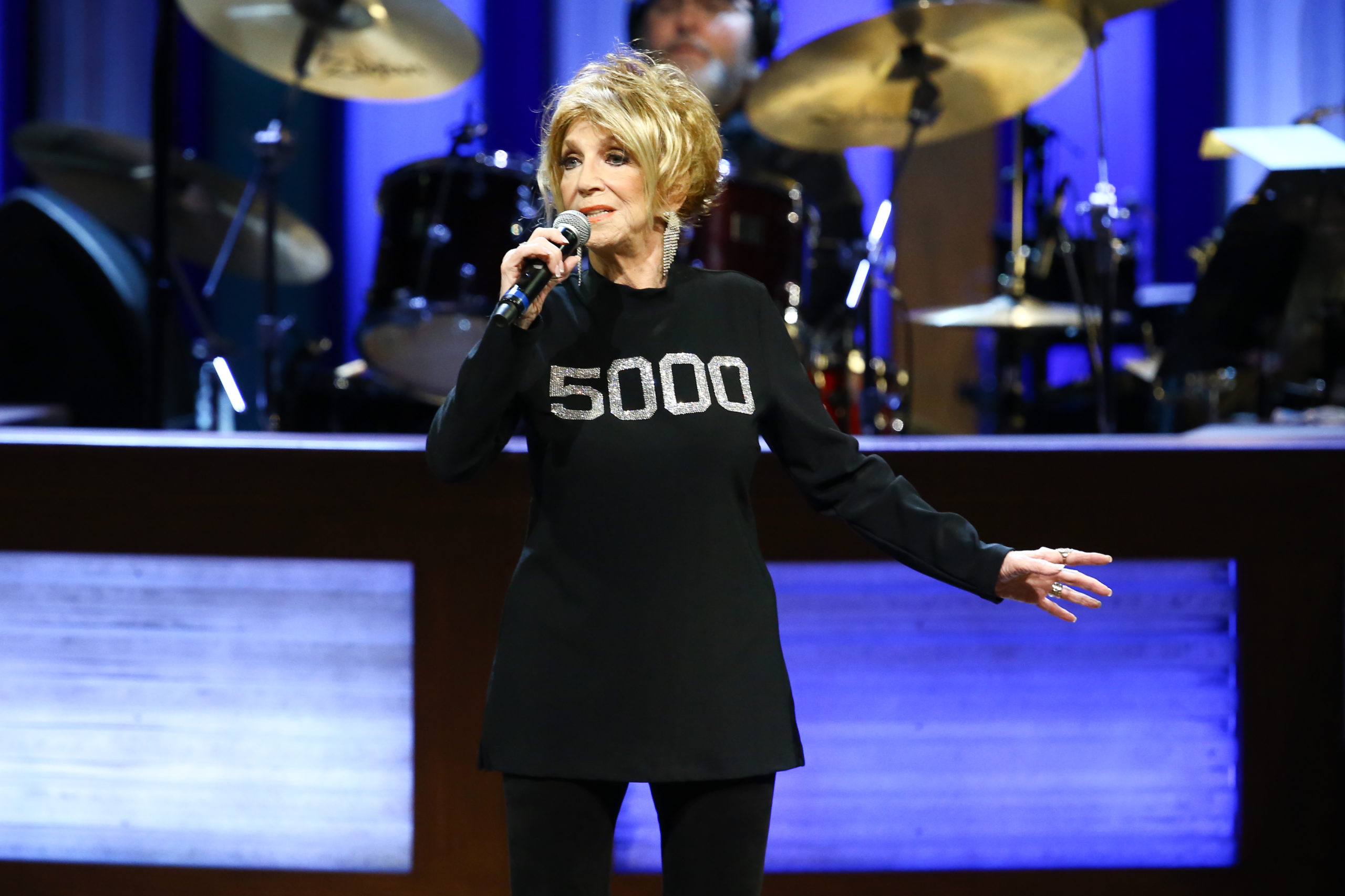
Terry Wyatt/Getty Images
Anderson and Smith joined fellow Opry mainstays (The Gatlin Brothers, Vince Gill, Jeannie Seely, John Conlee, Terri Clark), new members (The Isaacs) and current Nashville stars (Chris Janson, Dustin Lynch, Chris Young, Darius Rucker) for a special Oct. 30 broadcast billed as Opry 5000. Garth Brooks and Trisha Yearwood closed the evening with an expanded set.
"After all we have been through in the past 20 months, none of us took the Opry's 5,000th Saturday night broadcast lightly as the true milestone it was," Rogers said. "As the curtain went up on the show and guests in the crowd stood to applaud, it truly felt to me as if they were giving an ovation not just to the Opry members on stage, but to everyone who came before them and today are a part of the Opry's larger family of artists and staff. Throughout that very special night, the past, present and future of country music were on full display, as we hope is the case with every single Opry performance."
The Opry constantly has reason to reflect on its place in cultural history, with the next major milestone being its 100th birthday on Nov. 28, 2025.
"It seems like they have something to celebrate all the time because it's such an institution," said Trace Adkins, a member since 2003. "It is the Grand Ole Opry. They could celebrate something every week if they wanted to. It's the longest-running radio show ever, and the list goes on and on because it is such an iconic show. That's great, 5,000. That's unbelievable. And the fact that they continued doing shows, even through COVID, it's a testament... It's the unstoppable Grand Ole Opry. Nothing's going to stop the Grand Ole Opry. It's always going to be around, I hope. I love it, and I'm proud to be a member."
Editor's Note: Products featured on Wide Open Country are independently selected by our editors. However, when you buy something through our links, we may earn a commission.
